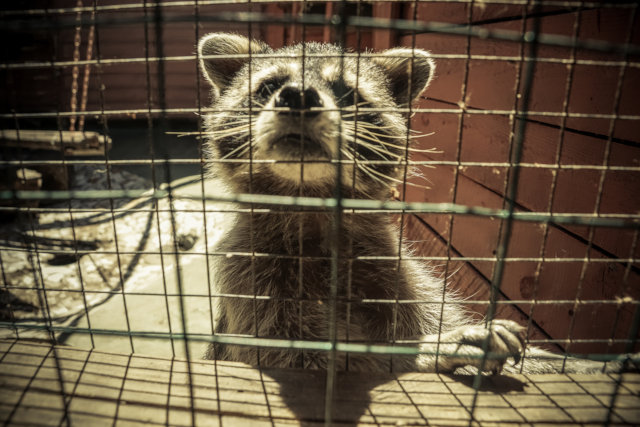As we urbanize more and more wildlife territory, we encounter various issues due to sharing our living space with our furry neighbors. In the areas that is very common to encounter racoons, we can come across their feces left behind in backyards or on tops of the shed, etc. Raccoons prefer to defecate on horizontal areas such a roof or on logs of wood laying around our properties. Raccoon feces are dangerous to us and our domestic animals, also. Feces may contain raccoon roundworm, which if ingested can be highly toxic to digestive system and cause raccoon roundworm infection. Raccoon roundworm forms in 2-4 weeks after raccoon defecates.
If humans ingest a raccoon roundworm and it may cause raccoon roundworm infection. Raccoon roundworm infection can potentially end with hospitalization. Common symptoms are nausea, enlargement of the liver or even other far more serious symptoms such as blindness or coma. Treatment can be extensive and time consuming. That is why it highly recommended that upon finding raccoon feces you contact a licensed technician for removal of the feces.
There are several steps within removal raccoon roundworm eggs/spores. First and foremost, prior to removing the feces we must gear ourselves up with protective wear, mask and gloves. That first step is essential when approaching any potential biohazard. The raccoon feces should be thoroughly sprayed with disinfectant to wet before removal. The better grade level of the disinfectant, the better the outcome. Once assured that all the feces are removed, we must then treat the surface upon which feces were found. Heat, as in many treatments, is extremely effective when combating bacteria or, in case of removing raccoon feces, eggs/spores. After removing feces remaining pathogens and roundworms can be resistant to disinfectants. Applying hot steam to the affected area will make us assured that nothing is left behind.
